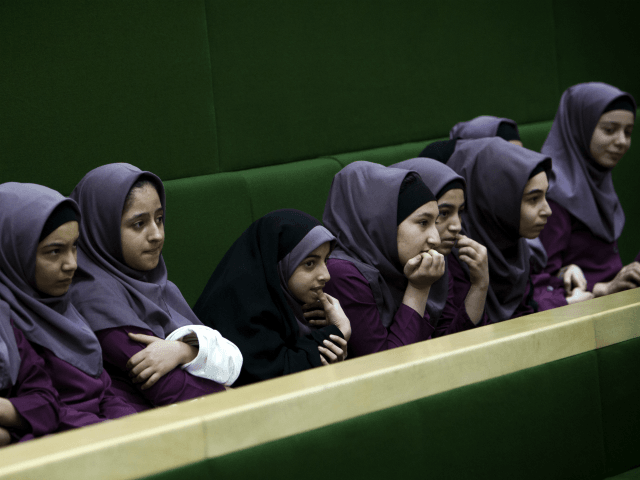Islamic leaders in Iran have banned English teaching from the curriculum of all junior schools to insulate the country from what they see as the invasion of Western cultural ideas and principles.
“Teaching English in government and non-government primary schools in the official curriculum is against laws and regulations,” Mehdi Navid-Adham, head of the state-run high education council, announced on state television. “The assumption is that in primary education the groundwork for the Iranian culture of the students is laid.”
The announcement comes as Iran’s Revolutionary Guard said the last of the anti-government protests that have roiled the country for the past week have finally been “put down.”
Those riots have been variously attributed to a host of foreign factors, although Saudi Arabia and the U.S. have been pinpointed as the main architects of the unrest, as Breitbart Jerusalem reported.
The teaching of English usually starts in middle school in Iran, at the ages of 12 to 14, but some primary schools below that age also have English classes. Private language institutes are also popular with students after their school day, while children from privileged backgrounds attending non-government schools receive English tuition.
This is not the first time the matter of the English language has troubled Iran’s theocracy.
Supreme Leader Ayatollah Ali Khamenei voiced anger in 2016 over the “teaching of the English language spreading to nursery school,” the Financial Times reports.
Khamenei, who has the final say in all state matters, said in a speech to teachers at the time: “That does not mean opposition to learning a foreign language, but (this is the) promotion of a foreign culture in the country and among children, young adults and youths.
“Western thinkers have time and again said that instead of colonialist expansionism the best and the least costly way would have been inculcation of thought and culture to the younger generation of countries.”
A video of the announcement of the ban was widely circulated on social media on Sunday, with Iranians calling it “the filtering of English”, jokingly likening it to the blocking of the popular app Telegram by the government during the unrest.
Estimates suggest the Telegram app has 42 million users in Iran alone and its disruption appears to have affected the protests.
Follow Simon Kent on Twitter: Follow @SunSimonKent or e-mail to: skent@breitbart.com

COMMENTS
Please let us know if you're having issues with commenting.